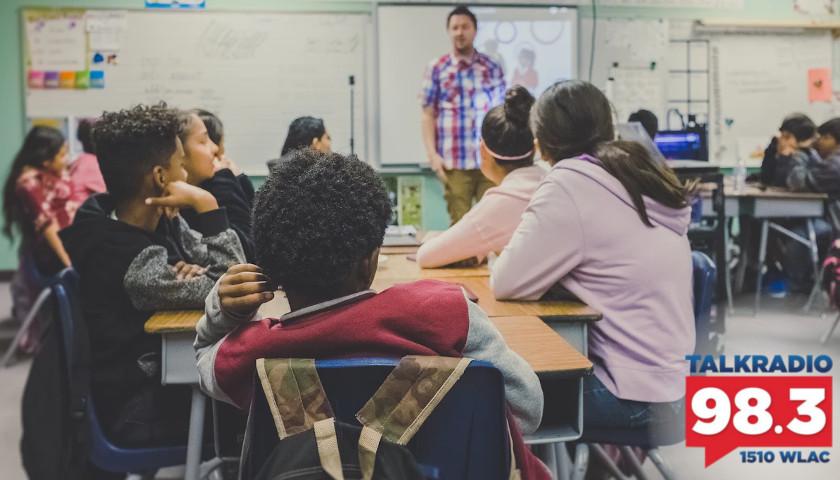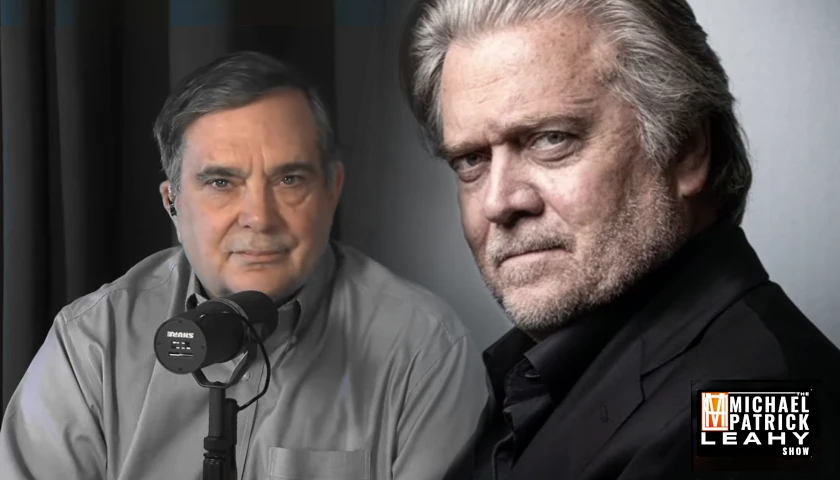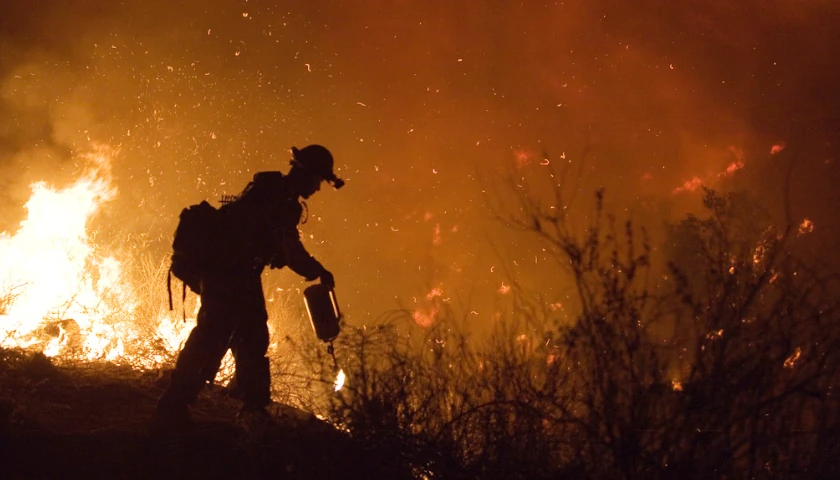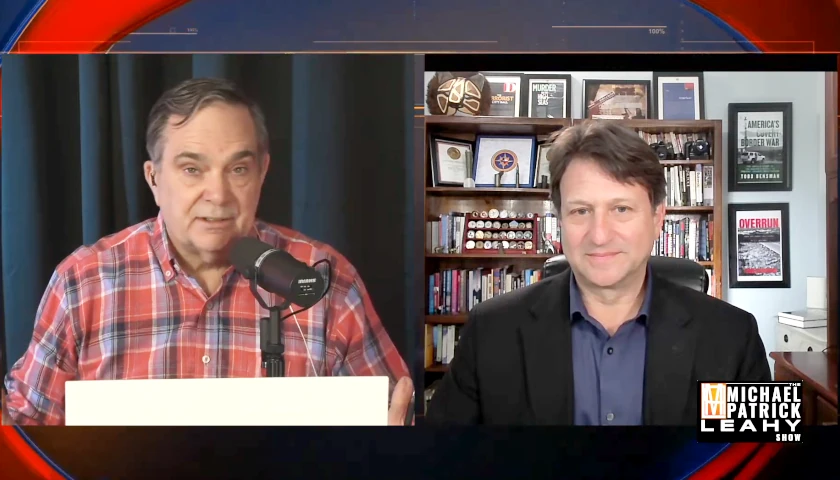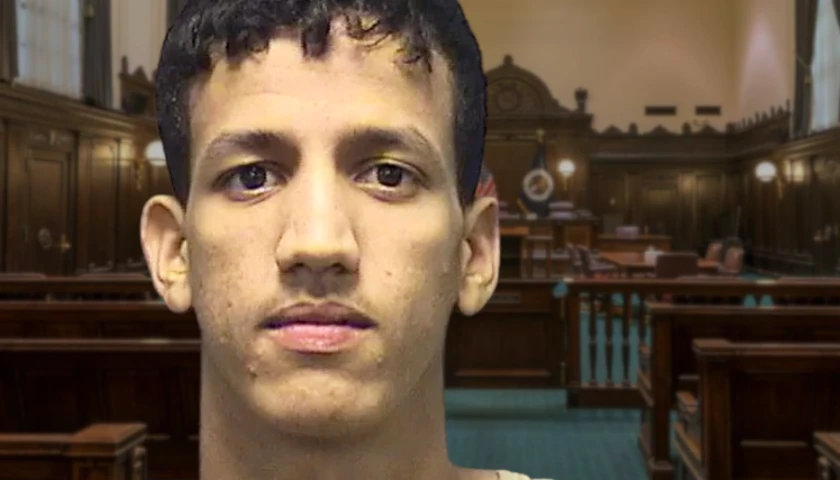Live from Music Row Wednesday morning on The Tennessee Star Report with Michael Patrick Leahy – broadcast on Nashville’s Talk Radio 98.3 and 1510 WLAC weekdays from 5:00 a.m. to 8:00 a.m. – host Michael Patrick Leahy welcomed all-star panelist Crom Carmichael and MNPS District Six School Board Member Fran Bush to the studio to discuss the failed leadership with Metro Public Schools.
Leahy: We are having a party in the studio this morning. Joining us as he almost always does on Monday, Wednesday, and Friday at 6:30 is the original all-star panelist Crom Carmichael. Good morning Crom.
Carmichael: Michael. Good morning sir.
Leahy: And also with us in the studio the very popular member of the Metro Nashville Public School Board and the champion of in-person learning Fran Bush. Good morning Fran.
Bush: Good morning.
Leahy: Well Crom, you know Fran exercised her freedom of speech the other day on Facebook and all the crazy folks on the left just were vicious in their personal attacks on her. And it was just a little bit off-putting. All Fran said basically was, I want to repeat the famous comment you made to the teachers that were didn’t want to go back to teaching in person. All you said was…
Bush: If you don’t like your day job then get another job. It was based on the complaints. It was just their negative comments. It was very disturbing to to hear them as the teachers that are supposed to serve our kids. And it was kind of scary that they’re teaching our kids and this is how they were feeling.
Leahy: Crom, I know you’re shocked at that teachers’ unions responded in this way to an actual and factual logical statement made by Metro Nashville Public School Board member Fran Bush.
Carmichael: Was there a mistake made in the policies to allow any government employee who didn’t go to work to be paid in full for months on end?
Bush: We were gracious. Definitely gracious throughout the time of this pandemic being on a virtual space. And as you know we are we’re coming up on almost a year of some students not even being back in the classroom.
Carmichael: In the charter schools, were they the same? Were they virtual?
Bush: Most charter schools are independent of course and they pretty much took Metro’s lead on how they were going to go through the process of the virtual space. They looked at the science they made their determination and because they’re independent they were able to make their own calls.
Carmichael: So what decision did most of them make?
Bush: Most of them stayed virtual.
Carmichael: For the whole time?
Bush: Yes. Most have. Some have tried it.
Carmichael: So Kipp Academy has not had children in school since March?
Bush: Kipp did go back to school the time that we phased ours back in with the elementary students. So they did try it around that October space that we were in where we started phasing in our students. So they did. They did also try that.
Carmichael: Okay, and private schools, have they gone back?
Bush: Yes, they went back to from day one. Day one.
Carmichael: And so the children who attend private schools, would you say they’ve been getting a better education than the Metro children who had been forced essentially not to go to school?
Bush: Absolutely from day one. What happened with the change of private schools they did exactly that. They followed the science. They did not go off of some metrics or you know more of the community spread. So they looked at their options.
Carmichael: Why should taxpayers, because you know, you say we’re gracious, whose gracious? It’s the taxpayers. Imagine if all the nurses and hospitals had said no, this is dangerous and I’m not going back to work, but I expect to be fully paid. I want all of my benefits. How would society have reacted to that? How would taxpayers have reacted? And this is not just Nashville. This is all across the country where you have the teachers who don’t want to do anything who are driving the agenda?
Bush: Yes. Absolutely. That’s what was happening here in Nashville. You are exactly right. It is across this country. I was contacted after this went viral and there are more media outlets that had said finally someone has to stand up to the to teachers unions because they were pretty much holding our kids as pawns. At this point, they were asking for more or money or they had all these demands that were really you couldn’t I mean it was just you could not meet those type of demands with the kind of money and cost that was going to be passed on to the taxpayers.
Leahy: So Fran, the teachers that have continued to be paid are they performing virtual duties while they’re being paid? What’s a typical Metro Nashville Public School teacher doing with their day when kids are not in class in-person?
Bush: They will be preparing their lesson plans. They’ll be preparing for the next time that they will be in session with the students. And from what I hear from a lot of our teachers that are in virtual learning that it is very hard. They do not like it. A majority of our teachers that I’ve spoken to said I do not like this.
This is not working. We know that this is going to cause an incredible amount of learning loss by not be able to see our students touch our students or be able to guide our students. And again our A through K-3 and K-4you know the majority don’t know how to read. And this year has really plagued them even more.
Leahy: So let’s talk about K-3 and K-4. Let’s use the word virtually impossible to teach K-4 kids in a Zoom virtual situation. What is the day like for a K-3 teacher?
Carmichael: Michael, I’m still trying to understand why based on what Fran is telling us is that is it most of the teachers would rather teach in person.
Leahy: Yes.
Carmichael: So it’s the teachers who don’t want to teach in-person who are the ones who are driving the agenda. And I don’t understand. The science is clear as a bell Michael to what you’re saying. From a science standpoint the less risk there is on COVID in general. In fact, there is probably more risk for a teacher to go to the supermarket to buy food than teach in class.
Leahy: Right. They’re surrounded by young kids who don’t transmit it.
Carmichael: Right, but there’s a small number of teachers relatively small number who are forcing all of the left column the good teachers. I’m being straight as I can here. I truly don’t understand how a large majority is run by a small majority of teachers who’d rather and my guess is the small majority of teachers who don’t want to go back to class. There’s a significant number of those who are just lazy.
Bush: To your point, it’s about following the leadership. We have Dr. Battle who’s a superintendent of our schools. You have Mayor Cooper. They have made these decisions. And the teachers, at some point they just have to sit back and wait on leadership. And that’s where I have been advocating to get these kids back in school and have been the only board member that has tried to support what you just mentioned right now.
Carmichael: Yeah, it’s really sad. There was an article in The Wall Street Journal about Catholic schools. Most of the Catholic schools teach exactly the same type of kid from a socio-economic standpoint as government-run schools, and they’ve been back in school and have been doing just fine.
Leahy: They’ve been doing fine.
Carmichael: So all of the stuff and statistics and all of this Anthony Fauci…
Leahy: I’m glad you used the word stuff. (Chuckles)
Carmichael: Follow the science, do this and do that. No, it’s following the convenience. It’s following what the least among us want to do. And you get to the point where it’s just beyond anger. A lot of the parents have chosen a different route.
Bush: They have.
Carmichael: A lot of parents have taken their kids out of the government-run schools and put them in private schools.
Bush: They have. And either that or they’ve left our city and going to different counties that are offering in-person. They have failed at Metro Nashville Public Schools and fill their students. And they were not going to be a part of that type of equation.
Carmichael: And the leadership could literally care less. You talk to these people. I truly don’t understand how the leadership of our city hear the cries of the parents and the scientists who say in-person learning for younger children is essential. Let’s use that word. Essential. If they are going to thrive and then the leadership just says, I don’t really care. There are a few teachers that don’t want to go back. They drive the ship.
Bush: Just quick. I will just say that you’re exactly right. Parents’ voices have been voiceless. They’ve taken complete power away from the parents and they’ve completely been ignored as far as their cares and concerns about going back to in-person learning.
Listen to the full second hour here:
– – –
Tune in weekdays from 5:00 – 8:00 a.m. to the Tennessee Star Report with Michael Patrick Leahy on Talk Radio 98.3 FM WLAC 1510. Listen online at iHeart Radio.
